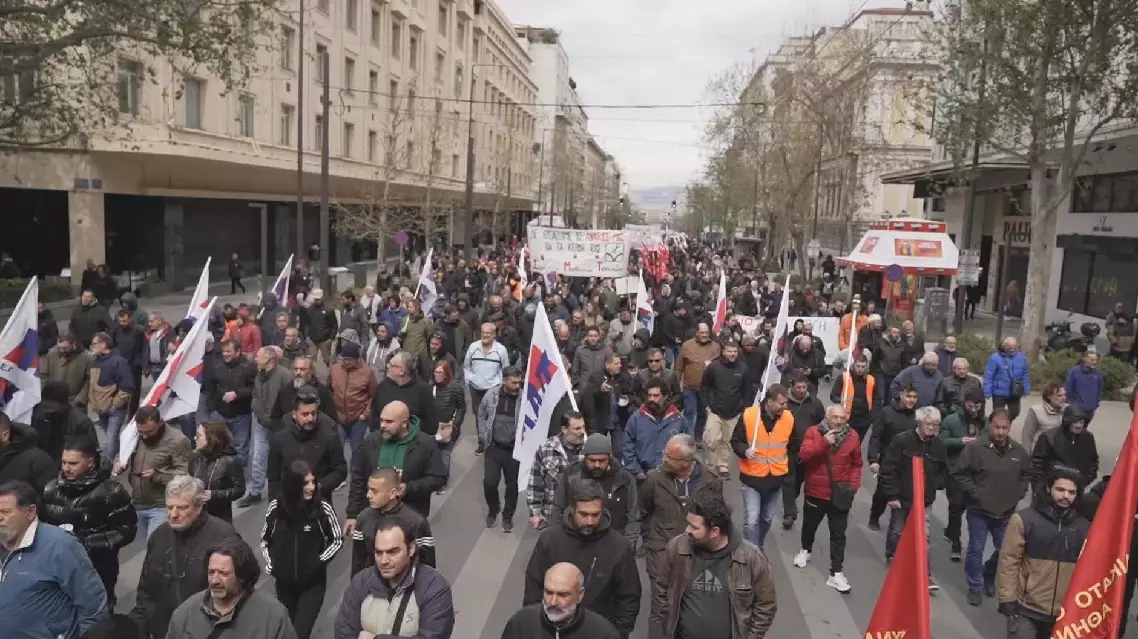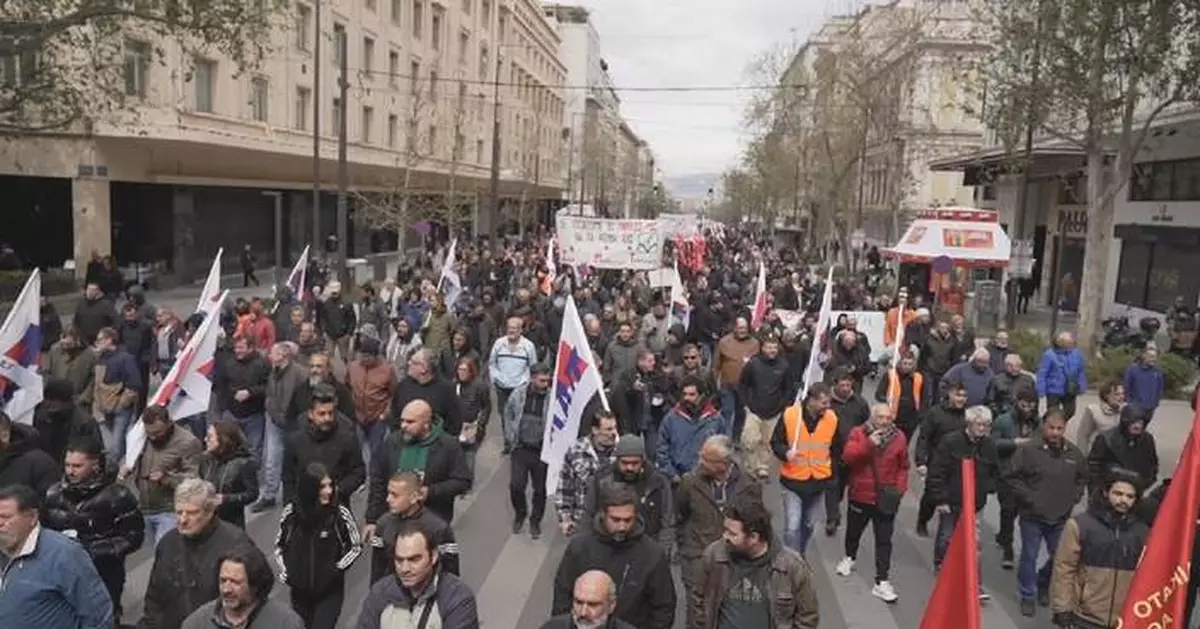A nationwide strike erupted across Greece on Wednesday, causing huge disruption to public services and transportation as residents took to the streets to demand higher salaries to compensate for the high cost of living.
Beginning early Wednesday morning, thousands of workers gathered across Greece, rallying in city centers and nearby government buildings. In Athens, crowds formed outside the Finance Ministry and in Klafthmonos Square, responding to calls by the country's two largest unions to stage a strike.
The protesters are demanding higher pay and the return of sector-wide collective bargaining agreements, saying salaries have failed to keep up with soaring inflation and housing costs.
"What we want to say to the government - and this can only be achieved if people come together, united and in large numbers, not through scattered protests - is that we need a real wage increase, not just the crumbs they're currently offering. We're talking about fair raises for everyone. The real issues are housing, public healthcare and education, and the need for strong collective labor agreements," said one protester.
The strike has brought major disruption to transport across the country as air traffic controllers joined the walkout, forcing the cancellation of all domestic and international flights
Ferry services were also halted, as the Panhellenic Seamen's Federation joined the strike action. Union representatives emphasized that their demands extend beyond financial considerations, highlighting long-standing safety and staffing concerns.
Public transport workers are calling for permanent contracts and improved staffing levels.
"It's frustrating to see a government that won't invest in public transportation or hospitals - and I'm saying this as a doctor - but somehow always manages to find money for harmful policies. People are really angry. We saw that on February 28, and that anger hasn't gone away," said another protester.
The government says recent labor reforms will modernize Greece and bring it in line with European Union standards. But many workers say the reforms do not go far enough, as inflation pushes up the cost of everyday essentials, leaving them struggling to make ends meet.
"The reality is, our pay runs out by the middle of the month. The raise the government gave us amounts to less than 50 cents a day, and with the cost of living constantly rising, we just can't get by. That's why we're speaking out," another protester explained.

Greece grinds to halt as thousands take to streets demanding higher wages




















































